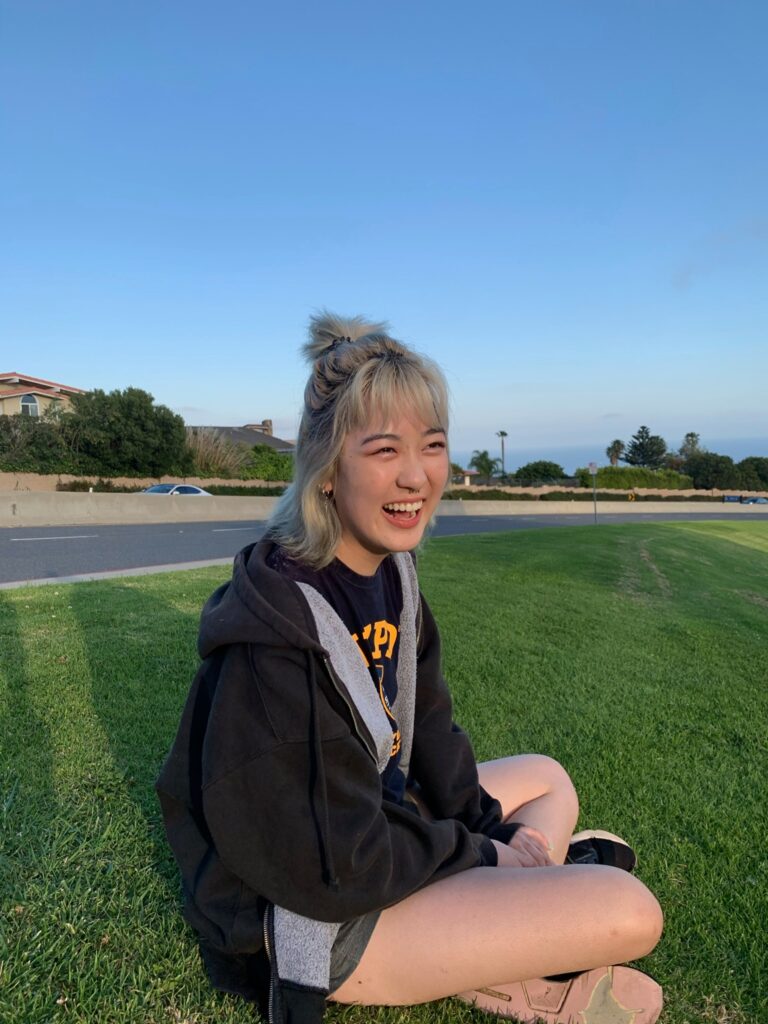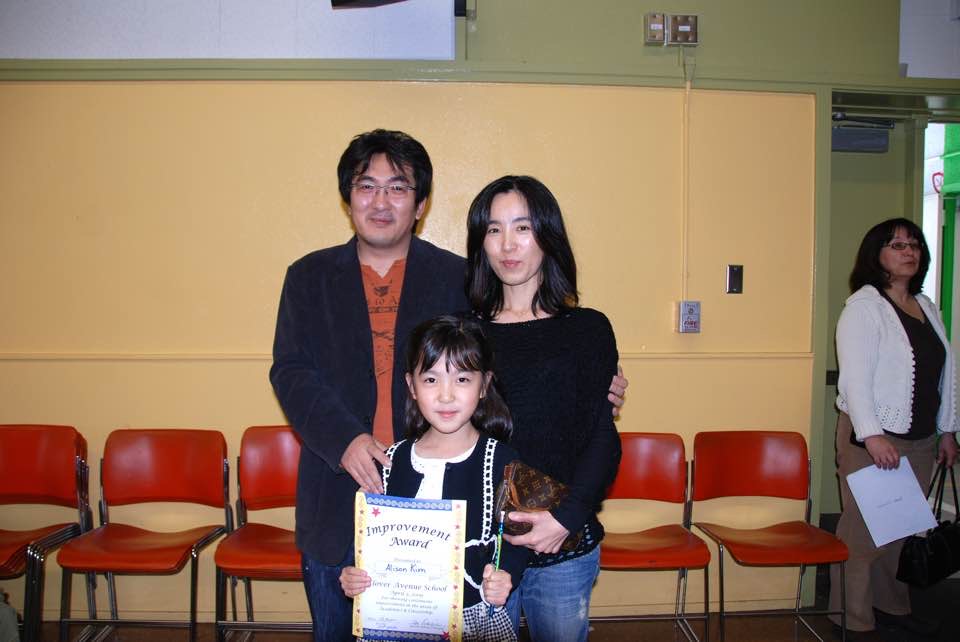Lucia Navarro ’23
Spring 2021

Picture this: eating Burger King in a random hotel room moments after you have just landed in one of the country’s biggest airports without even being able to pronounce the name of the city you are in. This was Alison Kim’s (they/she) first experience in the US at seven years old. Alison’s family migrated to Los Angeles, CA in 2007 from Daegu, South Korea in hopes of providing better opportunities for their two daughters.
Escaping from a bad economy and a toxic education system, Alison’s father quit his job, a job that gave his family a good and stable life in Korea. However, once in the US this was no longer the case as Alison’s parents struggled to find any kind of job to provide for their family and allow them to move out of their friends house where they were staying at. “There was just so much anxiety around making a living and trying to make sure we have food and shelter”.
Alison or their sister had no agency over their transition to the US. However, once enrolled in school Alison was met with lots of Asian-Americans and even a Korean teacher who Alison was able to confide in as they learned the American way of life. This school was a good place for Alison where they were able to thrive. They believe “coming into America at a young age was actually really beneficial” due to their ability to learn a new language so quickly.

The Duality of One’s Identity
Now at 19 years old, Alison continues to struggle with what it means to be genetically and legally Korean but also American since they are so deeply embedded in US culture. Not being able to return to their country for the past 12 years and losing touch with Korean culture, Alison no longer feels a connection to their Korean heritage. This in combination with the trauma Alison experienced in their childhood due to Korean values and beliefs, they “actually kind of have a hatred for…I kind of have some animosity towards my Korean heritage.”
Alison has recently discovered that they are autistic so “when you’re autistic and you’re not diagnosed, it creates a lot of problems with Korean heritage because all the aspects of being autistic (being blunt, straightforward, saying your mind) is a lot of times calculated into being very disobedient.” In fact, Alison doesn’t really have any Korean friends because they do not want to be constantly reminded of their Korean heritage.
“I don’t know how to interact with people who are like Korean Korean. I think I’m just so different and I feel like I would be very, very marginalized and hated upon for the way that I talk, the way that I think, the way that I dress, the way I look. It creates a very judgy kind of country in terms of their culture. They don’t say it explicitly but they will make hints at it and it’s very passive aggressive and I hate it.”

Alison is “really glad that I moved here because I would rather prefer the American way of things where that isn’t so deeply embedded into your social milieu”. However, just because Alison feels a stronger connection to American culture this does not mean that they will be accepted into it. Recently in the US, there has been an incredible spike in hate crimes against Asians, which is something that Alison can not ignore. Alison does not fully feel a sense of belonging in this country and they don’t believe they ever will.
“I don’t think I’d ever be fully American. What does that even mean, you know, there is no definition of being American. You’re just there and you’re you and what makes America America is the various different identities of people. And so people sometimes will label me as American but I personally, I’m just Allison, and my identity is not confined to one specific ethnicity or citizenship, and I will never let it do that. So no, I wouldn’t call myself American because that doesn’t exist.”
Still, Alison appreciates their identity as an immigrant since it has allowed them to do a lot of growing and learning. Living under the circumstances of being an immigrant, being marginalized has been a blessing in disguise. “It’s allowed me to be really perseverant, because I’ve dealt with so many awful things in my life. And it’s also given me a sense of strength and hope, which I really do think it’s a blessing.”

